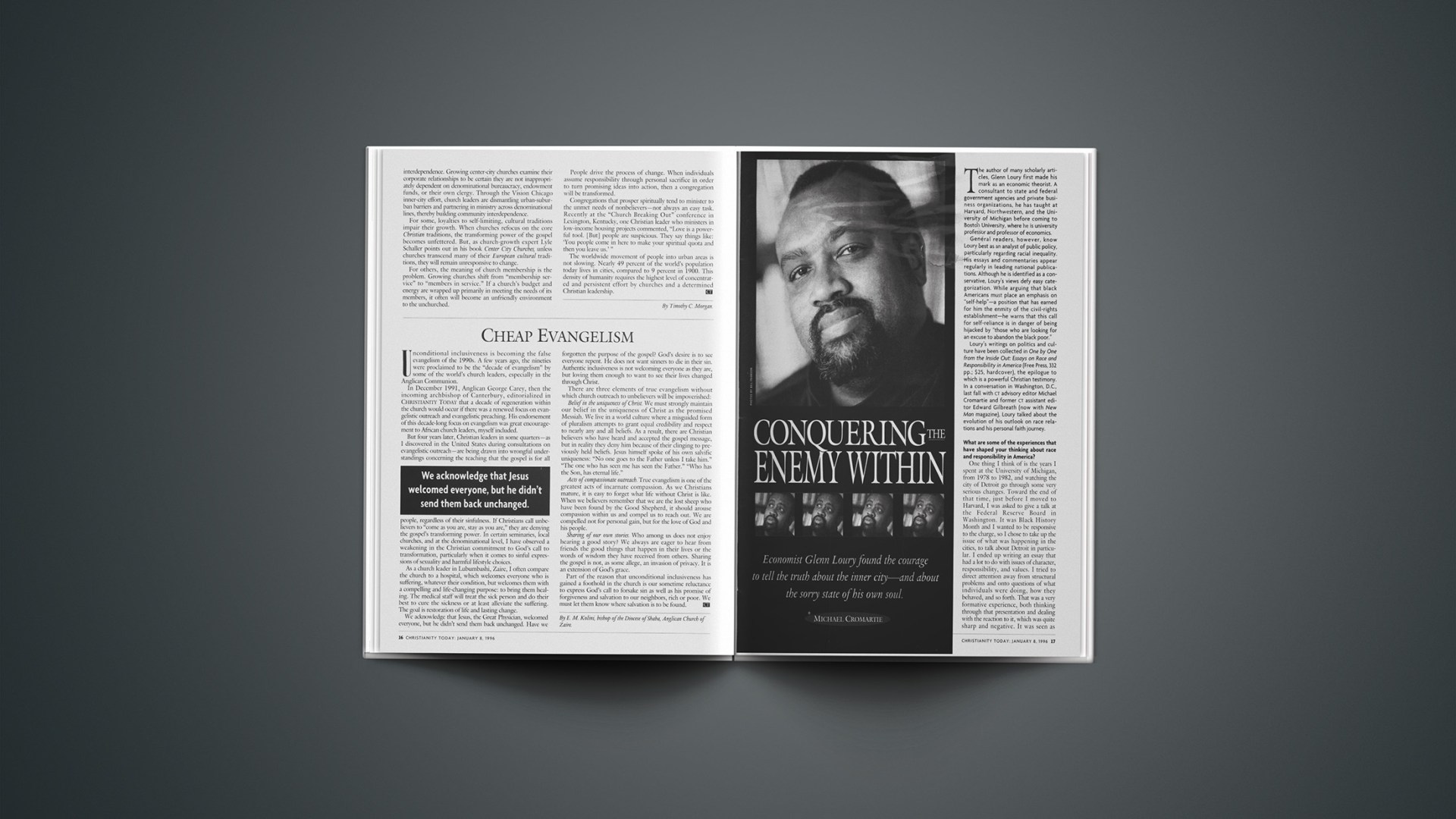Unconditional inclusiveness is becoming the false evangelism of the 1990s. A few years ago, the nineties were proclaimed to be the “decade of evangelism” by some of the world’s church leaders, especially in the Anglican Communion.
In December 1991, Anglican George Carey, then the incoming archbishop of Canterbury, editorialized in CHRISTIANITY TODAY that a decade of regeneration within the church would occur if there was a renewed focus on evangelistic outreach and evangelistic preaching. His endorsement of this decade-long focus on evangelism was great encouragement to African church leaders, myself included.
But four years later, Christian leaders in some quarters–as I discovered in the United States during consultations on evangelistic outreach–are being drawn into wrongful understandings concerning the teaching that the gospel is for all people, regardless of their sinfulness. If Christians call unbelievers to “come as you are, stay as you are,” they are denying the gospel’s transforming power. In certain seminaries, local churches, and at the denominational level, I have observed a weakening in the Christian commitment to God’s call to transformation, particularly when it comes to sinful expressions of sexuality and harmful lifestyle choices.
As a church leader in Lubumbashi, Zaire, I often compare the church to a hospital, which welcomes everyone who is suffering, whatever their condition, but welcomes them with a compelling and life-changing purpose: to bring them healing. The medical staff will treat the sick person and do their best to cure the sickness or at least alleviate the suffering. The goal is restoration of life and lasting change.
We acknowledge that Jesus, the Great Physician, welcomed everyone, but he didn’t send them back unchanged. Have we forgotten the purpose of the gospel? God’s desire is to see everyone repent. He does not want sinners to die in their sin. Authentic inclusiveness is not welcoming everyone as they are, but loving them enough to want to see their lives changed through Christ.
There are three elements of true evangelism without which church outreach to unbelievers will be impoverished:
Belief in the uniqueness of Christ. We must strongly maintain our belief in the uniqueness of Christ as the promised Messiah. We live in a world culture where a misguided form of pluralism attempts to grant equal credibility and respect to nearly any and all beliefs. As a result, there are Christian believers who have heard and accepted the gospel message, but in reality they deny him because of their clinging to previously held beliefs. Jesus himself spoke of his own salvific uniqueness: “No one goes to the Father unless I take him.” “The one who has seen me has seen the Father.” “Who has the Son, has eternal life.”
Acts of compassionate outreach. True evangelism is one of the greatest acts of incarnate compassion. As we Christians mature, it is easy to forget what life without Christ is like. When we believers remember that we are the lost sheep who have been found by the Good Shepherd, it should arouse compassion within us and compel us to reach out. We are compelled not for personal gain, but for the love of God and his people.
Sharing of our own stories. Who among us does not enjoy hearing a good story? We always are eager to hear from friends the good things that happen in their lives or the words of wisdom they have received from others. Sharing the gospel is not, as some allege, an invasion of privacy. It is an extension of God’s grace.
Part of the reason that unconditional inclusiveness has gained a foothold in the church is our sometime reluctance to express God’s call to forsake sin as well as his promise of forgiveness and salvation to our neighbors, rich or poor. We must let them know where salvation is to be found.
Copyright © 1996 Christianity Today. Click for reprint information.










